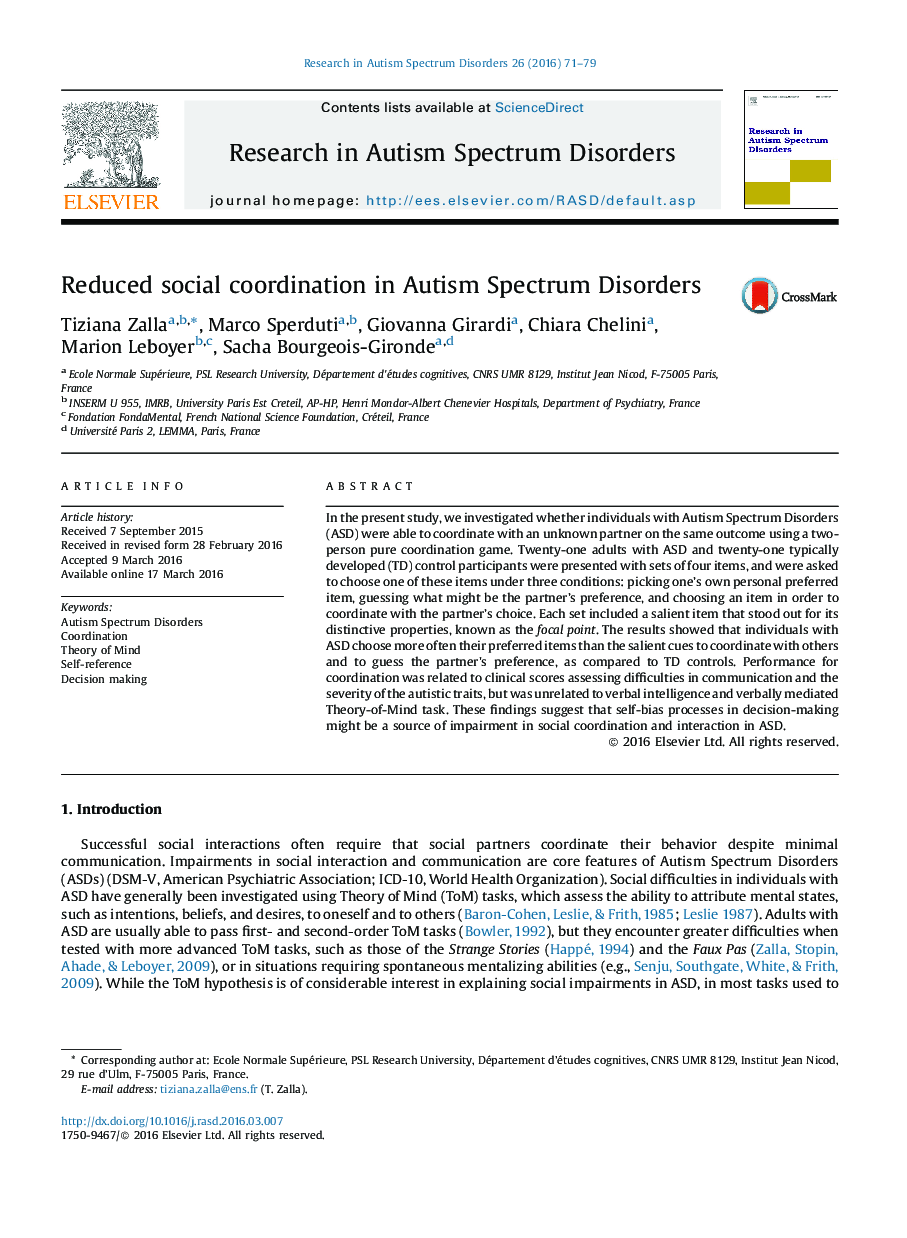| Article ID | Journal | Published Year | Pages | File Type |
|---|---|---|---|---|
| 369956 | Research in Autism Spectrum Disorders | 2016 | 9 Pages |
•Adults with Autism Spectrum Disorder (ASD) fail to coordinate in a two-person game.•Their coordination behaviour is biased on own personal preferences.•Coordination abilities related to verbal and non verbal communication difficulties.•A self-bias in decision making hinders social coordination in ASD.
In the present study, we investigated whether individuals with Autism Spectrum Disorders (ASD) were able to coordinate with an unknown partner on the same outcome using a two-person pure coordination game. Twenty-one adults with ASD and twenty-one typically developed (TD) control participants were presented with sets of four items, and were asked to choose one of these items under three conditions: picking one’s own personal preferred item, guessing what might be the partner’s preference, and choosing an item in order to coordinate with the partner’s choice. Each set included a salient item that stood out for its distinctive properties, known as the focal point. The results showed that individuals with ASD choose more often their preferred items than the salient cues to coordinate with others and to guess the partner's preference, as compared to TD controls. Performance for coordination was related to clinical scores assessing difficulties in communication and the severity of the autistic traits, but was unrelated to verbal intelligence and verbally mediated Theory-of-Mind task. These findings suggest that self-bias processes in decision-making might be a source of impairment in social coordination and interaction in ASD.
